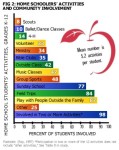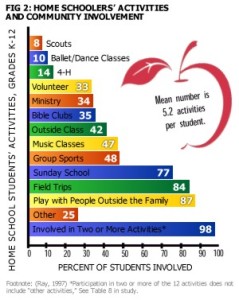submitted by jwithrow.
Journal of a Wayward Philosopher
College Alternatives
March 20, 2015
Hot Springs, VA
The S&P opened at $2,090 today. Gold is up to $1,170 per ounce. Oil checks in at $46 per barrel. Bitcoin is still trading around $262 per BTC, and the 10-year Treasury rate opened at 1.96% today.
Yesterday we opined that the proverbial needle was rapidly approaching the student loan bubble and that the American system of higher education would shrink significantly once the bubble popped. Today I feel it prudent to discuss why this is not such a bad thing.
We briefly analyzed the student loan racket yesterday and discussed how students currently graduate college with a mound of debt disproportionate to the job market and income-prospects they face. This is enough to warrant questioning, but the ills of the college system run even deeper.
We have discussed at length the problems inherent within the public school system here and we have noted how the system systematically conveys a lack of purpose to students. Students are force-fed a medley of politically correct information on various subjects and they are expected to memorize and then regurgitate this information. They are told this is important so they can get good grades which they need to get into college. This is a very vague purpose which tends to lead students away from critical thinking and introspection thus few students really discover and cultivate their individual talents and passions.
To the students’ surprise, the higher education system simply expands upon this vagueness of purpose. Students arrive at these beautiful campuses expecting to learn the secrets to success but they soon find out the college curriculum is mostly more of the same – memorize the chapters in this standardized textbook and regurgitate the information on the test. Oh, and this textbook costs $200 but don’t worry you can get a student loan to cover it. So our student quickly learns that college is not a fountain of knowledge but rather just another system to be gamed.
This model of education encourages what Napoleon Hill, in Outwitting the Devil, referred to as ‘drifting’. Hill defines ‘drift’ by saying “people who think for themselves never drift, while those who do little or no thinking for themselves are drifters”. Hill continues: “A drifter is one who permits himself to be influenced and controlled by circumstances outside of his own mind… He doesn’t know what he wants from life and spends all of his time getting just that. A drifter has lots of opinions but they are not his own.”
The habit of drifting is exactly what the American higher educational system reinforces. Just as high school students were told college acceptance is their ultimate goal, college students are told a high-paying job is the ultimate goal to be pursued. Their focus then is on building best possible ‘resume’ (with as little work as possible) so as to impress the corporate recruiters who show up at job fairs on their campus every spring. Further, the college grading system reinforces the fear of making of mistakes already deeply imbedded in the minds of the students who have completed twelve years of public education. Errors are ridiculed and scorned in college just as they were in high school so the necessity to conform is hammered home even harder.
So upon graduating college most students: lack a defining sense of purpose, have been cultured to avoid mistakes at all costs, and are knee deep in debt. Naturally, they are compelled to take the first job that offers them a decently salary and a health insurance plan regardless of their actual interest in the particular job or industry.
Welcome to the rat-race.
Hill would admonish me for focusing exclusively on the negatives so I will humbly labor to present some positive alternatives to the current model of higher education. Mind you, the current system operates under the institutional model and that is a large part of the problem. The best alternatives are individualized in nature thus they require a break from the institutional way of thinking; simply replacing one institutional model with another will never accomplish much of anything.
Where to start?
Life is meant to be lived. Life is about freedom. Governments and institutions infringe upon personal freedom but try to convince you they are morally justified in doing so. Despite these constant infringements, we have the ability to claim more individual freedom today than ever before in modern history. Technology is the great enabler. It is also the great decentralizer.
The college years are a time to learn how to live independently and to explore various interests and passions. As we have pointed out, college does a poor job of facilitating real learning. I would suggest that college also does a poor job of aiding students in learning to live independently. Cramming two eighteen-year-old kids into a room the size of a single office and forcing them to share a bathroom with even more eighteen-year-olds is not realistic prep for the real world unless the kids plan to live on a commune somewhere. Likewise, living with four or five other twenty-year-old kids in frat (and sorority) houses doesn’t really facilitate independent learning unless the kids want to make a career out of party planning.
At the same time, college towns are a great place to meet people with all kinds of backgrounds and cultures. They are also great places to meet people with similar passions and interests. This exposure certainly fosters a tolerance for different ideas as well as the potential to form lasting partnerships with others of like-mind.
College Alternatives Number One: What if our eighteen-year-old, instead of enrolling in college, simply moved to a college town of their choice? They could take on internships with local businesses for low (or no) pay to explore traditional career paths. They could organize or attend meet-up groups for students with similar passions to share ideas and knowledge. They could work to develop online business opportunities around those passions and interests to learn what works and what doesn’t. They could potentially sit-in on select classes of interest if they wanted to as well. Though the overall curriculum may largely be a waste of time, there are certainly individual classes that are interesting and valuable. Whether it’s art or computer programming or classic literature or astronomy or whatever, the professor would probably be thrilled to have someone in the class who is actually interested in what he has to say… everyone else is simply interested in getting a good grade and moving on within the system. And I am sure our eighteen-year-old would do all kinds of other interesting things that I have never thought of before also.
All with zero student loan debt. Sure there would be living expenses but they would pale in comparison to tuition, room, board, and textbooks. If the parents had employed the Infinite Banking Concept for our student then living expenses would already covered for several years at least.
College Alternatives Number Two: what if our hypothetical eighteen-year-old spent a year traveling internationally? They would experience all sorts of different worldviews and cultures and probably learn a foreign language or two in the process. Maybe they would observe a growing trend somewhere which could lead to a tremendous business or investment opportunity. Maybe they would become a freelance travel writer and make a career out of the experience. Maybe they would blog about their travel and build a readership that would lead to income opportunities. Maybe they would see an underserved community and start a niche charity dedicated to a singular mission.
College Alternatives Number Three: Suppose our eighteen-year-old has been homeschooled and permitted to develop skills around a particular passion already? He could go directly into his chosen field either by starting a business or by seeking out internships and mentors in the chosen industry. If he already knows what he would like his first career to be then there is no reason for him to pursue additional generalized education at this point. The beauty of this scenario is that our eighteen year old will have twenty years of experience in his industry by the young age of thirty-eight. In all likelihood financial success will have followed his career mastership and he will be free to then explore other interests or passions if he desires something new and exciting. The notion of working in a single industry for one’s entire life and then retiring to go fishing and piddle around the house all day is a New Deal relic that will die off when Social Security implodes. Mastering two or three different careers over one’s lifetime will be extremely common going forward. And following this individualized model will leave plenty of time for fishing and piddling should you so desire as well. After all, it’s not work if you are doing what interests you.
These are just three examples of many possible college alternatives. With a little vision and a little faith, anything is possible.
More to come,
Joe Withrow
Wayward Philosopher
For more of Joe’s thoughts on the “Great Reset” and the paradigm shift currently in motion please read “The Individual is Rising” which is available at http://www.theindividualisrising.com/. The book is also available on Amazon in both paperback and Kindle editions.



















